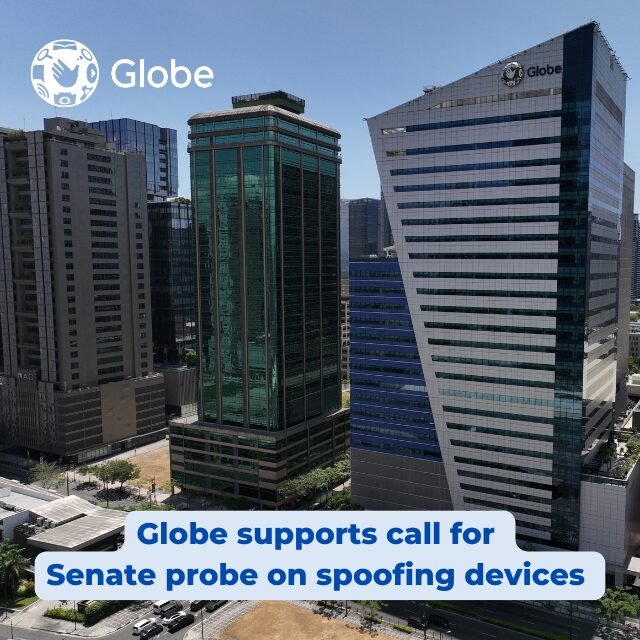Supports call for Senate probe on spoofing devices

Globe Telecom has expressed alarm over spoofing or SMS hijacking, a fraud scheme behind the proliferation of scam texts that evade telco networks.
This was gleaned during the media forum KapiHann of the Pampanga Press Club held at the Swissotel on Feb. 5, where Globe executives Carlo Bernardo Santos, Senior Director for Analytics, Intelligence and Stakeholder Engagement, and Jomel Gonzaga, Media Relations Manager of Corporate Communications, served as guests.
Both executives told mediamen that the telecommunications network fully supports the call for a Senate investigation into the illegal trade of International Mobile Subscriber Identity (IMSI) catchers.
They said Sen. Mark Villar recently filed a resolution seeking a senate inquiry on the trade of IMSI catchers, which allow fraudsters to send out malicious SMS in the guise of legitimate sender IDs. These portable devices serve as fake cell towers that enable SMS sending outside telco networks, thus evading spam filters.
Santos said Globe has been working with government agencies to curb spoofing by cutting off the supply of IMSI catchers in the country. These devices are imported into the country either in full or in parts for assembly, then used for illegal activities.
Meanwhile, Globe’s General Counsel Atty. Froilan Castelo said spoofing or SMS hijacking using IMSI catchers has been a major headache for both the industry and law enforcement.
“Spoofed messages are difficult to track because of the technology. We have high hopes that through this Senate probe, we’d be able to address the root of the problem: the illegal trade of IMSI catchers in the country,” he said.
“This is a major step in our shared goal of protecting the public from fraud. Through this legislative inquiry, we hope to find a clear path forward in the fight against IMSI catchers,” said Castelo.
Globe stands ready to provide technical expertise and support to the Senate panel as needed.
Gonzaga told mediamen during the forum that fraudsters have used IMSI catchers to impersonate Globe’s official sender ID, duping customers with fake Globe Rewards claims and other unauthorized messages.
Such spoofed messages have seen a rise as Globe enforced stricter spam and scam blocking, filtering out all person-to-person SMS with links and enforcing stringent regulations on app-to-person SMS with URLs, the executives said.
Globe’s pioneering move to remove links in SMS messages shows the company will go the extra mile to make it a scam-free network and protect customers, Santos said.
“Unfortunately the new method of scammers such as using IMSI catchers goes directly to the device and does not pass through the network anymore. Currently, Globe is looking at more advanced technologies that might help address this issue,” he added.
Meantime, Globe is reminding the public to stay vigilant against suspicious text messages, including those that seem to come from legitimate sources.
“Be cautious of links and offers that seem too good to be true. As a security measure and to protect customers, Globe does not include clickable links in its official text advisories,” the executives said.
Customers who receive scam SMS are encouraged to report them through Globe’s #StopSpam portal.
For more information on Globe’s initiatives against fraud, visit https://www.globe.com.ph/.



